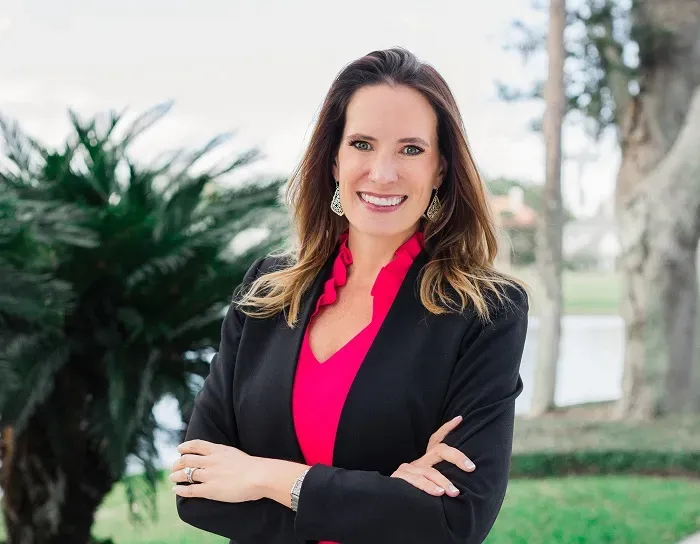Leadership Series Q&A with Hilary Keeley, The Sontag Foundation

Hilary Keeley is the executive director of The Sontag Foundation, which joined CCC in 2019. She reflects on why her organization joins forces within the cancer community to advance treatments for brain cancer and why that matters now more than ever.
The Conquer Cancer Council (CCC) is a group of for-profit and non-profit organizations committed to improving cancer care in their communities. In this Q&A series, leaders share how uniting with oncology leaders helps advance efforts to conquer cancer.
All of healthcare is being impacted by Coronavirus. What will this mean for cancer?
As you know, major industry conferences, including ASCO, are being modified, rescheduled or cancelled because of travel concerns. The major cancer institutions throughout the United States are experiencing strain on their systems, which undoubtedly will impact research labs, clinical trials, and present challenges for cancer patients to access care.
Albert Einstein said, “in the midst of every crisis, lies great opportunity.” I believe that a year from now we will look back on this event with fresh eyes. Institutions are looking to research labs to find novel ways to identify the COVID-19 RNA to expedite testing, using many of the same theories scientists are studying to better understand the makeup of cancer tumors. Institutions are looking to the oncology community to better understand radiation and ways it can be used to sanitize medical equipment until additional supplies are available. I see scientists throughout the country sharing data and critical findings, because time is of the essence. I believe these stories are just the beginning. Stories of collaboration, information sharing, and teamwork, the key ingredients we need to find the cure for cancer. Lessons will be learned from this crisis and I believe we will see great opportunity for the research community as well.
What do you see as the most salient issues in cancer care?
A cancer diagnosis can be overwhelming for both the patient and caregiver. From a patient perspective, I believe two critical issues are patient education and access to care. Patients are often asked to make a lot of decisions very quickly. These decisions may impact future treatment options, including access to clinical trials. While there are many factors that ultimately drive a patient’s decision regarding treatment, it is critical that patients and their caregivers have access to complete and unbiased information to make an informed decision regarding their care. I see the impact this has on families firsthand through the work of our sister organization, The Brain Tumor Network (BTN). BTN provides free navigation services to patients diagnosed with a brain tumor. Whether it is helping to navigate the clinical trial process, locating a treatment center or a specialist for a second opinion, or simply providing information about support groups, patients and their caregivers are armed with critical information to have informed conversations with their physicians regarding their treatment plan.
From a curative perspective, we have to prioritize sustainable financial investments in research. Until very recently, cancer treatment followed a “one-size-fits-all” approach based on standard treatments by cancer type alone. We now know that cancer type is only one piece of the very complicated puzzle. The Sontag Foundation began funding brain cancer research in 2003 and is one of the major funders of brain cancer research in the United States. Through the Foundation’s signature funding initiative, the Distinguished Scientist Award (DSA), we have invested over $35 million to support brain cancer research, primarily through funding early career scientists at major comprehensive cancer centers throughout the United States and Canada. We also fund Conquer Cancer Young Investigator Award recipients with an interest in brain cancer research, which gives us another opportunity to invest in potential research at an even earlier stage in a young scientist’s career.
Despite decades of research, brain tumors remain among the deadliest of all forms of cancer. Brain tumors are also considered a rare form of cancer, which unfortunately means brain cancer research traditionally receives lower levels of funding than the more prevalent forms of cancer and there is a smaller pool of researchers focusing on finding a cure. We are hoping to change these statistics. We believe in funding early career scientists that show a promise in brain cancer research. We also know that we cannot do this alone, which is why it is beneficial to unite with other leaders. We believe that working together with other funders and advocates and encouraging the medical and research community to collaborate both within their institutional walls and beyond will reduce duplicative efforts and will help move the needle faster to a cure.
Why did The Sontag Foundation choose to join the CCC?
We believe in the Council’s vision of improving outcomes and improving patient care through collaboration and innovation. It provides a unique opportunity to engage with healthcare industry stakeholders to discuss challenges and brainstorm about potential solutions to improve the lives of patients with cancer. It also provides an opportunity to develop professional relationships with other healthcare leaders in a collaborative setting.